Alexander Aulehla
EMBL Heidelberg
Germany
EMBL Course
Please see EMBL’s COVID-19 safety policy for testing and other requirements to attend this on-site course.
This practical course will cover advanced light microscopy techniques and participants will learn how to derive qualitative and quantitative insights on molecular mechanisms in cells and developing organisms. Invited guest researchers together with microscopy experts from EMBL will foster an intense information flow with a balance of lectures and practical workshops. The focus of the course will be on the use of fluorescence microscopy to obtain information about localisation and functions of proteins and other bio-molecules at different spatial scales.
This course is directed towards researchers in the life sciences with access to light microscopy equipment, who have an immediate need to apply the techniques they will learn to solve biological problems at the cellular and molecular level in vivo. As the course will be primarily focused on the advanced techniques, we expect participants to have basic knowledge of light microscopy.
The topics will include fluorescence microscopy techniques such as fast time-lapse microscopy of living cells, spinning disk and point-scanning confocal microscopy, light sheet microscopy of cleared samples, photo-manipulation as a tool, multicolour single-molecule localization microscopy (SMLM) with spectral demixing, expansion microscopy, FRET-based techniques. For demanding applications, we will cover the aspects of image processing and analysis and the possibilities of microscope automation. The modules will cover all necessary knowledge and demonstrate tools to conduct similar pipelines at your home lab enabling you to answer emerging biological questions.
This course is kindly supported by the EMBL Advanced Light Microscopy Facility.
This course is organised in cooperation with Evident.
“I highly recommend this course if you are looking to take your fluorescence microscopy experiments to the next level.” – Josefina Marin-Rojas, Universidad de Chile, Chile
EMBL Heidelberg
Germany
Abbelight
France
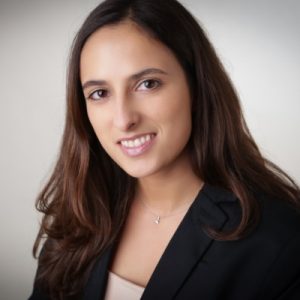
University of Zurich
Switzerland
University of Bonn
Germany
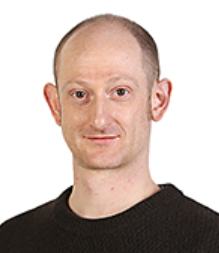
EMBL Heidelberg
Germany
EMBL Heidleberg
Germany
University of Amsterdam
The Netherlands
Evident
Germany
Evident
Germany
Abbelight
France
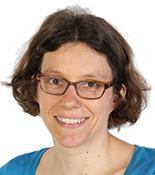
EMBL Heidelberg
Germany
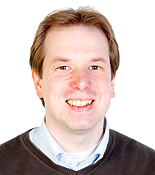
EMBL Heidelberg
Germany
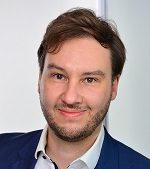
Evident
Germany
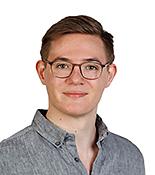
EMBL Heidelberg
Germany
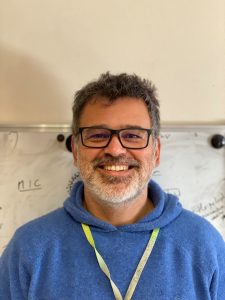
ITQB NOVA
Portugal
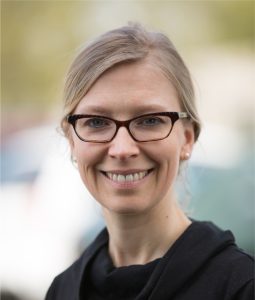
EMBL Heidelberg
Germany
PhaseView
France
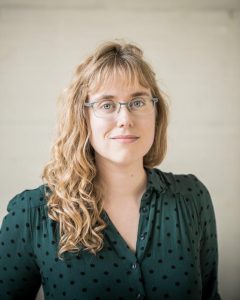
EPFL
Switzerland
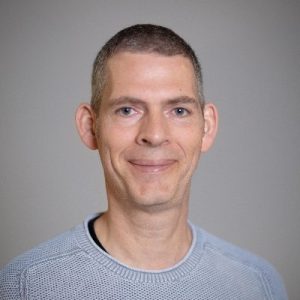
EMBL Heidelberg
Germany
University of Zurich
Switzerland
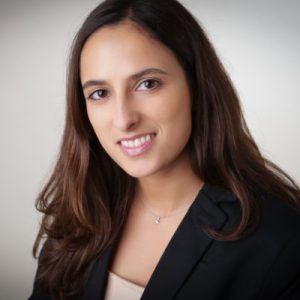
University of Zurich
Switzerland

EMBL Heidelberg
Germany
EMBL Heidleberg
Germany
Abbelight
France

Evident
Germany
PhaseView
France
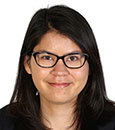
Course and Conference Manager
EMBL Heidelberg
Germany
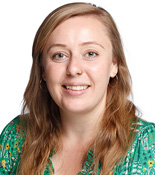
Training Lab Technician
EMBL Heidelberg
Germany
| Time (Europe/Berlin) | Speaker | Location |
|---|---|---|
| 15:30 – 16:00 | Registration | ISG Hotel – Seminar Room Berlin |
| 16:00 – 16:30 | Welcome | ISG Hotel – Seminar Room Berlin |
| 16:30 – 19:30 | Flash talks by participants | ISG Hotel – Seminar Room Berlin |
| 19:30 – 21:00 | Dinner | ISG Hotel |
| Time (Europe/ Berlin) | Speaker | Location |
|---|---|---|
| 08:40 | Bus from ISG Hotel to EMBL | Hotel entrance |
| 08:55 – 09:00 | Safety briefing by Swetlana Krez – EMBL Heidelberg | Courtyard Room A & B |
| 09:00 – 10:00 | Lecture + Q&A: Concepts in Light microscopy Urs Ziegler – University of Zurich, Switzerland | Courtyard Room A & B |
| 10:00 – 11:00 | Lecture + Q&A: DIY super-resolution: Expanding biology above diffraction Pedro Matos Pereira- ITQB, Portugal | Courtyard Room A & B |
| 11:00 – 11:10 | Coffee Break | Courtyard Room A & B |
| 11:10 – 11:30 | Lecture: How Euro-BioImaging can support your research with access to the best imaging Marianna Poli – EMBL Heidelberg, Germany | Courtyard Room A & B |
| 11:30 – 12:30 | Lecture + Q&A: Light sheet microscopy Robert Kasper – Evident, Germany | Courtyard Room A & B |
| 12:30 – 13:30 | Lunch | EMBL Canteen |
| 13:30 – 16:00 | Hands-on practical 1: Live cell imaging Joana Delgado – University of Zurich, Switzerland Urs Ziegler – University of Zurich, Switzerland (Groups 1+2) 3D imaging of model organisms with CLSM Stefan Terjung – EMBL, Heidelberg, Germany Stefan Marawske – Evident (Groups 3+4) | Microscopy rooms 116 + 117 |
| 16:00 – 16:15 | Coffee break | Courtyard Room A & B |
| 16:15 – 18:45 | Hands-on practical 2: 3D imaging of model organisms with CLSM Stefan Terjung – EMBL, Heidelberg, Germany Stefan Marawske – Evident (Groups 1+2) Deconvolution Urs Ziegler – University of Zurich, Switzerland (Groups 3+4) | Microscopy rooms 116 + 117 Computer training lab |
| 18:45 – 19:45 | Dinner | EMBL Canteen |
| 19:45 | Bus to Hotel | ATC Entrance |
| Time (Europe/ Berlin) | Speaker | Location |
|---|---|---|
| 08:40 | Bus from ISG Hotel to EMBL | Hotel entrance |
| 09:00 – 10:00 | Lecture + Q&A: Adaptive Feedback Microscopy Aliaksandr Halavatyi – EMBL Heidelberg, Germany | Courtyard Room A & B |
| 10:00 – 11:00 | Lecture + Q&A: Visualizing chromosomes during meiosis Simone Köhler – EMBL Heidelberg, Germany | Courtyard Room A & B |
| 11:00 – 11:30 | Coffee break | Courtyard Room A & B |
| 11:30 – 12:30 | Practical: Setting and debugging adaptive feedback microscopy pipelines Manuel Gunkel – EMBL Heidelberg, Germany | Computer training lab |
| 12:30 – 13:30 | Lunch | EMBL Canteen |
| 13:30 – 16:00 | Hands-on practical 3: Applying adaptive feedback microscopy for high-throughput photoactivation of specific cell phenotypes Aliaksandr Halavatyi – EMBL Heidelberg, Germany Manuel Gunkel – EMBL Heidelberg, Germany (Group 1) TBC Group 2 Deconvolution Urs Ziegler – University of Zurich, Switzerland (Groups 3+4) | Microscopy rooms 116 + 117 |
| 16:00 – 16:15 | Coffee break | Courtyard Room A & B |
| 16:15 – 18:45 | Hands-on practical 4: Applying adaptive feedback microscopy for high-throughput photoactivation of specific cell phenotypes Aliaksandr Halavatyi – EMBL Heidelberg, Germany Manuel Gunkel – EMBL Heidelberg, Germany (Groups 3) TBC (Group 4) Deconvolution Urs Ziegler – University of Zurich, Switzerland (Groups 1+2) | Computer training lab Microscopy rooms 116 + 117 |
| 18:45 – 20:00 | Pizza dinner and informal discussion | |
| 20:00 | Bus to Hotel | ATC entrance |
| Time (Europe/ Berlin) | Speaker | Location |
|---|---|---|
| 08:40 | Bus from ISG Hotel to EMBL | Hotel entrance |
| 09:00 – 09:45 | Lecture + Q&A: Introduction to SMLM, from concepts to samples Debora Keller Olivier – Abbelight, France | Courtyard Room A & B |
| 09:45 – 10:45 | Lecture + Q&A: Measuring interactions and biosensors using FRET Mark Hink – University of Amsterdam, The Netherlands | Courtyard Room A & B |
| 10:45 – 11:15 | Coffee break | |
| 11:15 – 12:30 | Practical: Preparation of expansion microscopy samples Pedro Matos Pereira- ITQB, Portugal | Training Lab |
| 12:30 – 13:30 | Lunch | EMBL Canteen |
| 13:30-16:00 | Hands-on practical 5: Multicolor Single molecule Localization Microscopy with Spectral Demixing Debora Keller-Olivier – Abbelight, France (Group 1) Ultra-thin light sheet microscope with automated multi-scale imaging capabilities Robert Kasper – Evident, Germany (Group 2) FRET Mark Hink – University of Amsterdam, The Netherlands (Group 3) Imaging expanded samples Pedro Matos Pereira- ITQB, Portugal (Group 4) | Microscopy rooms 116 + 117 |
| 16:00-16:15 | Coffee break | Courtyard Room A & B |
| 16:15-18:30 | Hands-on practical 6: Ultra-thin light sheet microscope with automated multi-scale imaging capabilities Robert Kasper – Evident, Germany (Group 1) Multicolor Single molecule Localization Microscopy with Spectral Demixing Debora Keller-Olivier – Abbelight, France (Group 2) Imaging expanded samples Pedro Matos Pereira- ITQB, Portugal (Group 3) FRET Mark Hink – University of Amsterdam, The Netherlands (Group 4) | Microscopy rooms 116 + 117 |
| 18:30 | Bus to dinner downtown | ATC entrance |
| Time (Europe/ Berlin) | Speaker | Location |
|---|---|---|
| 09:00 – 10:00 | Lecture + Q&A: Visualizing chromosomes during meiosis Simone Köhler – EMBL Heidelberg, Germany+ Q&A: | Courtyard Room A & B |
| 10:00 – 11:00 | Lecture + Q&A: We can start testing next month” practical considerations for spatial transcriptomics and multiplexing Anjalie Schlaeppi – EPFL | Courtyard Room A & B |
| 11:00 – 11:30 | Coffee break | Courtyard Room A & B |
| 11:30 – 12:30 | Lecture + Q&A: Visualizing cellular life – From single cell imaging to in vivo single-molecule biophysics & biochemistry and structural (micro-)biology Ulrike Endesfelder – University of Bonn, Germany | Courtyard Room A & B |
| 12:30 – 13:30 | Lunch | EMBL Canteen |
| 13:30-16:00 | Hands-on practical 7: FRET Mark Hink – University of Amsterdam, The Netherlands (Group 1) Imaging expanded samples Pedro Matos Pereira- ITQB, Portugal (Group 2) Applying adaptive feedback microscopy for high-throughput photoactivation of specific cell phenotypes Aliaksandr Halavatyi – EMBL Heidelberg, Germany Manuel Gunkel – EMBL Heidelberg, Germany (Group 3) Multicolor Single molecule Localization Microscopy with Spectral Demixing Debora Keller-Olivier – Abbelight, France (Group 4) | Microscopy rooms 116 + 117 |
| 16:00-16:15 | Coffee break | Courtyard Room A & B |
| 16:15-18:45 | Hands-on practical 8: Imaging expanded samples Pedro Matos Pereira- ITQB, Portugal (Group 1) FRET Mark Hink – University of Amsterdam, The Netherlands (Group 2) Multicolor Single molecule Localization Microscopy with Spectral Demixing Debora Keller-Olivier – Abbelight, France (Group 3) Applying adaptive feedback microscopy for high-throughput photoactivation of specific cell phenotypes Aliaksandr Halavatyi – EMBL Heidelberg, Germany Manuel Gunkel – EMBL Heidelberg, Germany (Group 4) | Microscopy rooms 116 + 117 |
| 18:45 – 19:45 | Dinner | EMBL Canteen |
| 19:45 – 20:45 | Informal Q&A, discussion and drinks | Courtyard Room A & B |
| 20:45 | Departure to Hotel | ATC entrance |
| Time (Europe/ Berlin) | Speaker | Location |
|---|---|---|
| 09:00 – 10:30 | Practical: FRET data analysis Mark Hink – University of Amsterdam, The Netherlands | Computer training lab |
| 10:30 – 11:00 | Coffee break | outside Computer training lab |
| 11:00 – 12:30 | Practical: SMLM data analysis Marko Lampe – EMBL Heidelberg, Germany | Computer training lab |
| 12:30 – 13:30 | Lunch | EMBL Canteen |
| 13:30 – 14:45 | Preparation of student presentations | Computer training lab |
| 14:45 – 16:15 | Student presentations | Computer training lab |
| 16:15 – 16:40 | Wrap up of course and departure | |
| 16:40 | Bus to Heidelberg main station | ATC entrance |
The course is limited to 16 participants. For selection purposes, please note that your application will not be considered without a letter of motivation.
Registration fees include admission, course materials, COVID-19 safety measures, meals and coffee breaks. Participants are expected to book and pay their own accommodation and travel expenses.
| Academia | €550 |
| PhD Student | €550 |
| Industry | €1100 |
A letter to support your visa application will be issued, on request, once payment of the registration fee is confirmed. We recommend that you book your visa appointment as soon as possible, to avoid any delay with your visa application.
The registration fee should be paid only after acceptance to the course. The results will be announced approximately 2-3 weeks after the application deadline.
After you have logged in and successfully registered, you will receive an email asking you to submit your motivation letter. Click on the link provided and enter your motivation letter in the text box provided. Alternatively, you can submit your motivation letter by clicking on the link on the confirmation page directly after registering.
Instructions
Please note:
For detailed instructions, please watch our video on how to submit a course motivation letter.
For further information about registration and motivation letter submission please refer to the FAQ page.
Single rooms have been reserved for 5 nights (7-12 May 2023) at the ISG Hotel. After the selection process, selected participants should contact the hotel directly to make a booking (booking code MIC23-02). We recommend that all course participants stay at the ISG Hotel which is the dedicated hotel for the course.
Shuttle buses will go from the ISG Hotel to EMBL and back, mornings and evenings.
Please see the bus schedule here.
Address: EMBL Heidelberg, Meyerhofstraße 1, 69117 Heidelberg, Germany
For further information on getting to EMBL Heidelberg visit our Travel Information page.
For enquiries about accommodation and local transportation please refer to the FAQ page.
Limited financial assistance is provided by the EMBL Advanced Training Centre Corporate Partnership Programme and EMBO in the form of both registration fee waivers and travel grants. Availability is limited to participants attending on-site EMBL Courses and virtual or on-site EMBO Practical Courses in Heidelberg, and will be indicated during the motivation letter submission process.
Your place in the course is only confirmed by paying the registration fee, which is mandatory even when receiving a fee waiver.
The fee waiver will cover the registration sum that you have paid to attend the course.
The travel grant will cover the cost of travel (airfare, train, bus, taxi, accommodation, visa, and/or registration fees*) and is provided up to specified caps which are normally as follows:
– up to €400 for participants travelling to an EMBL Course within Europe.
– up to €1000 for participants travelling to an EMBL Course from outside Europe.
– up to €500 for any participant travelling to an EMBO Practical Course.
– up to €1000 for any participant working in Chile, India, Singapore or Taiwan travelling to an EMBO Practical Course.
– up to €700 for any participant working in Croatia, Czech Republic, Estonia, Greece, Hungary, Italy, Lithuania, Luxembourg, Poland, Slovenia, and Turkey travelling to an EMBO Practical Course.
*Registration fees are only covered for EMBO Practical Courses
The organisers may reduce the grant cap to accommodate more participants. Recipients will be notified of their travel cap amount when they are informed of the outcome of their application. Original receipts must be provided with your signature for all costs incurred within two months of completion of travel. Scanned copies cannot be accepted.
Applies to selected courses only. Availability will be indicated during the motivation letter submission process.
This grant covers costs related to your attendance at the course (registration, travel and accommodation costs). The grant is restricted to PhD students and postdocs who conduct basic biomedical research.
Whether you are eligible to apply for a travel grant, depends on when you received your university entrance qualification (e.g. Abitur, A-Levels, High School Diploma, Final State Examination):
– for PhD and MD students, as well as graduates, the university entrance qualification must not have been obtained more than 11 years ago at the time of the envisaged course
– for postdocs, the university entrance qualification must not have been obtained more than 13 years ago at the time of the envisaged course
You may apply for financial assistance when submitting your motivation letter for courses. In your application, you will be asked to answer questions regarding why your lab cannot fund your attendance and how your attendance will make a difference to your career. Application for financial support will not affect the outcome of your registration application.
For the Boehringer Ingelheim Fonds Travel Grant, there is a pre-application question during the motivation letter submission process, and if selected you will be requested to complete a standard form and documentation consisting of your travel expense estimation.
The scientific organisers will select the recipients of all financial assistance during the motivation letter selection process. Results will be announced approximately 6-8 weeks before the event start date, however for some events this may be delayed. Selection results do not impact your admission to the course. Selection is based on scientific merit, your current work or study location, the reasons for needing financial support, and the impact this event will have on your career.
Costs will be reimbursed after the meeting only once a reimbursement form and original receipts (from travel costs) have been received.
See our list of external funding opportunities and for further information about financial assistance please refer to the FAQ page.
Please find additional information including FAQs, terms and conditions, COVID-19 safety policy and travelling to EMBL on our Information for Participants page.
COVID-19 information for on-site events at EMBL Heidelberg can be found in our COVID-19 FAQs.
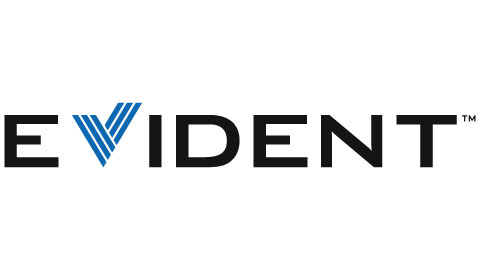
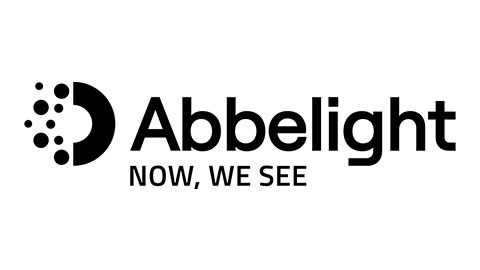
Sponsorship opportunities
We offer a variety of event sponsoring possibilities, with the flexibility to select a set sponsorship package or combine individual sponsorship options to suit your event budget. Discounts are available for companies sponsoring multiple events at EMBL Heidelberg. View other events, or contact sponsorship@embl.de for further information.
If you are interested in becoming a media partner of this event, please visit our media partnerships webpage.
EMBL wishes to warn sponsors of EMBL conferences and courses of fraudulent schemes purporting to offer sponsorship opportunities on behalf of EMBL or affiliated with EMBL officials. One current scam campaign of which we are aware is conducted using the name ‘Judy Eastman’ (judy@gopcontact.a2hosted.com) and entails approaches to sponsors offering sponsorship opportunities on EMBL’s behalf. Please be kindly advised that all relevant communication regarding sponsorship of EMBL conferences, symposia and courses is handled by EMBL directly and is sent from an official EMBL account. EMBL does not work with any external providers on sponsorship acquisition.
Please also note that:
Suspicious communications purportedly from, for or on behalf of EMBL should be reported to EMBL at the following email address sponsorship@embl.de.
Want to let others know you’re attending this event? Take a look at our shareable media and feel free to use them in your social media channels or presentations.
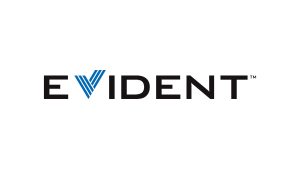
Date: 7 - 12 May 2023
Location: EMBL Heidelberg
Venue: EMBL Advanced Training Centre
Deadline(s):
Registration: Closed
Organisers:
Contact: Lea Hohmann